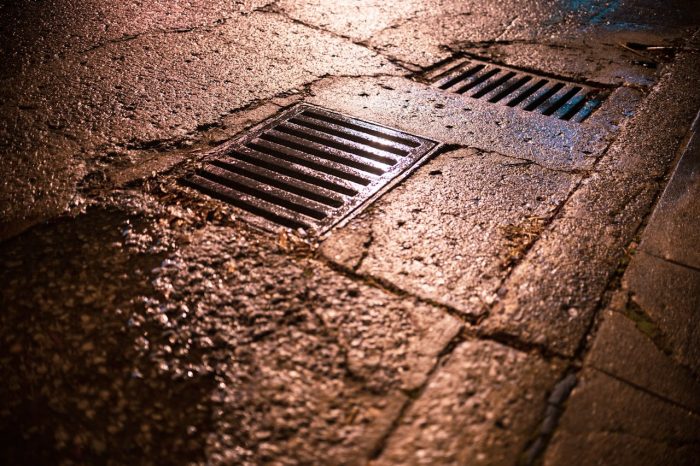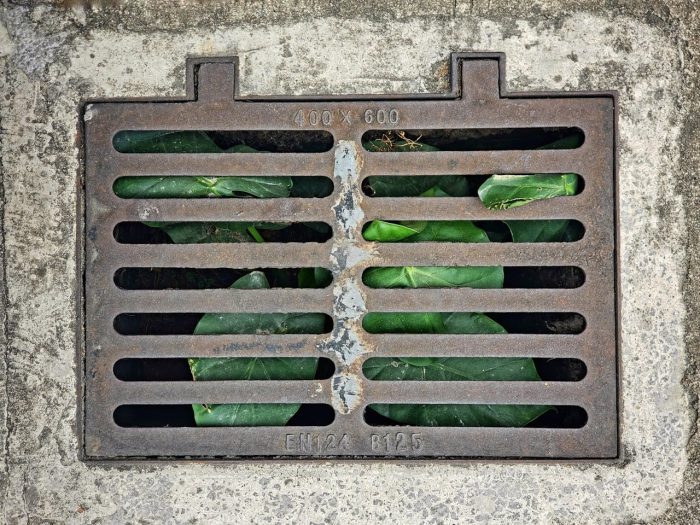
To unclog a drain naturally, you can avoid using harmful chemicals by using techniques that are safe for the environment and won’t harm the drain. This method minimizes your influence on the environment while simultaneously protecting your plumbing and health. Hot water, vinegar, and baking soda are common natural remedies that you can use to break down waste such as grime and grease. If the blockage persists after these methods, you may need to call a plumber or use a plunger. For anyone who is interested in implementing eco-friendly habits around the house, these methods work well for keeping drains clear.
Here’s How to Unclog a Drain Naturally
Removing clogs from a drain naturally is an eco-friendly and efficient option. Here are some ideas you might already have around the house:
- Baking soda and salt
- You’ll need half a cup of salt, half a cup of baking soda, and water that’s boiling.
- Combine the baking soda and salt.
- Pour the mixture into the drain.
- Give it a few hours, or maybe a night, to steep.
- Boil water and flush the toilet.
- Wire Hanger (Drain Snake)
- To straighten a wire hanger, remove the little hook from its end.
- Put the hook down the drain and see if you can get any hair or food stuck in there.
- To prevent breaking the pipe, handle it with care.
- Boiling Water
- You can easily boil water in a kettle and pour it down the drain in stages.
- Give the hot water a few seconds to find its way past the clog between pours.
Clogs due to soap or grease are the ones that this procedure works best for.

- Enzyme Cleaners
- Get a drain cleaner that uses beneficial bacteria enzymes to break down organic substances.
- To get the most out of it, follow the bottle’s directions.
- Baking soda and vinegar
- Ingredients: boiling water, 1/2 cup vinegar, and 1/2 cup baking soda.
- To unclog a drain, pour baking soda down it.
- After that, add the vinegar. As the ingredients begin to bubble and fizz, they will aid in dissolving the blockage.
- After mixing, set aside for 15 to 30 minutes to cool.
- To remove boiling water from a kettle, pour it down the drain.
Do it again if the blockage is really stubborn.
- Plunger
- Place enough water in the sink to reach the plunger bell.
- Position the plunger over the drain to create a seal.
- To remove the obstruction, quickly push and pull the plunger to generate suction.
When all-natural methods fail to unclog a drain, this technique is the next best thing.
You may avoid using harmful chemicals that can harm the environment and damage pipes by using these natural methods to keep your drains clear.
Benefits of unclogging a drain naturally
There are a number of advantages to unclogging a drain naturally rather than using harsh chemical drain cleaners. A few benefits are as follows:
- Prevents Chemical Buildup
- In the long run, the residues left behind by chemical drain cleaners can weaken pipe components and make clogs more likely. This problem is typically sidestepped using natural techniques.
- Safer for Plumbing
- Pipes can corrode with time and eventually rupture if you use harsh chemical drain cleaners. The plumbing system is handled more delicately and naturally.
- Septic systems are delicate ecosystems, and utilizing chemical cleansers can upset that delicate balance, leading to expensive repairs. For such systems, natural approaches are preferable.
- Effective for Mild to Moderate Clogs
- You can use natural methods instead of chemicals to clear the most common clogs. This includes ones produced by food particles, soap scum, or hair.
- Health Benefits
- Natural eliminating the need to bring potentially dangerous chemicals and pollutants into your house, natural ways can keep you and your family safe.
- Some people might get skin irritation, breathing problems, or allergic reactions due to the components in chemical drain cleaners.
- Instant Availability
- Clogs can be quickly and easily removed without the need to buy specialized chemicals when you use items that are commonly found in your own home for natural drain cleaning.
- Less Harmful to Surfaces and Skin.
- Unlike chemical cleaners, natural substances won’t harm your kitchen or bathroom surfaces if they spill.
- There is less chance of skin damage or burns while using natural treatments, as opposed to chemical cleaners.
- Eco-friendly
- A plunger, vinegar, and baking soda are some of the natural ways to minimize the amount of harmful substances that make it into the water supply.
- You may lessen your impact on the environment and promote sustainable living by opting for eco-friendly practices.
- Cost-Effective
- Natural drain cleaning is a cost-effective option because boiling water, vinegar, and baking soda are common household ingredients and can be found inexpensively.
- Natural approaches might ultimately save you money on plumbing repairs by preventing damage to your pipes.
The Disadvantages of a Clogged Drain
Even though a clogged drain is just an annoyance at first glance, it can really cause a lot of problems down the road. Let’s take a closer look at the drawbacks of blocked drains:
- Ecological Concerns
Property Value Decreases
- A property’s market value can be negatively affected by persistent plumbing issues, which can reduce its functional and aesthetic appeal.
Water Waste
- People may unintentionally waste water if they leave the taps running for longer than needed due to clogged pipes or slow draining.
Emotional Stress
- Constant plumbing problems are a major source of tension and aggravation, which in turn lowers people’s quality of life.
Sewage Backups
- Sewage backing up into your home due to a major blockage poses a significant health and environmental risk.
- Decreased plumbing efficiency
Higher Repair Costs
- Disregarding small blockages can lead to bigger problems with your plumbing, which will require costly replacements or repairs.
Increased Wear and Tear
- Over time, bursts or leaks can occur when pipes are subjected to constant pressure from persistent obstructions.
Slow Drainage
- When drains become clogged, common tasks like washing dishes or showering become more of a hassle.
- Water Damage
Structural Damage
- Rot and mold growth can develop when water pools in one place for an extended period of time, which can compromise your home’s structural integrity.
Health Hazards
- Mildew and mold growth
- Allergies and respiratory problems can be exacerbated by mold and mildew, which thrive in damp, standing water.
Flooding and Overflow
- Water has nowhere to go when drains are clogged, which can cause overflows. Damage to personal belongings, walls, and flooring can occur as a result of flooding.
Bacterial Breeding Ground
- Poisonous bacteria can thrive in stagnant water and accumulated garbage, endangering the health of everyone living there.
Pest Infestations
- Rodents, drain flies, and even cockroaches are just some of the pests that linger in waste and stagnant water, which pose additional hygiene and health risks.
Nasty Smells
- When organic waste gets stuck in the drain and starts to decompose, it releases unpleasant odors that can spread throughout your home.
Preventive Measures
To avoid these issues, it is critical to maintain your drains on a regular basis. Among these are:
- You should call a plumber when you see a blockage that won’t go away.
- Regularly clean drains using eco-friendly products.
- Drain guards can be used to catch debris.
- Never flush down the toilet with solids or grease.
Immediate attention to drain concerns results in a healthier, safer, and more pleasant living environment.
Conclusion
If you want to unclog a drain naturally without causing any harm to your house or the environment, try using a natural method.
